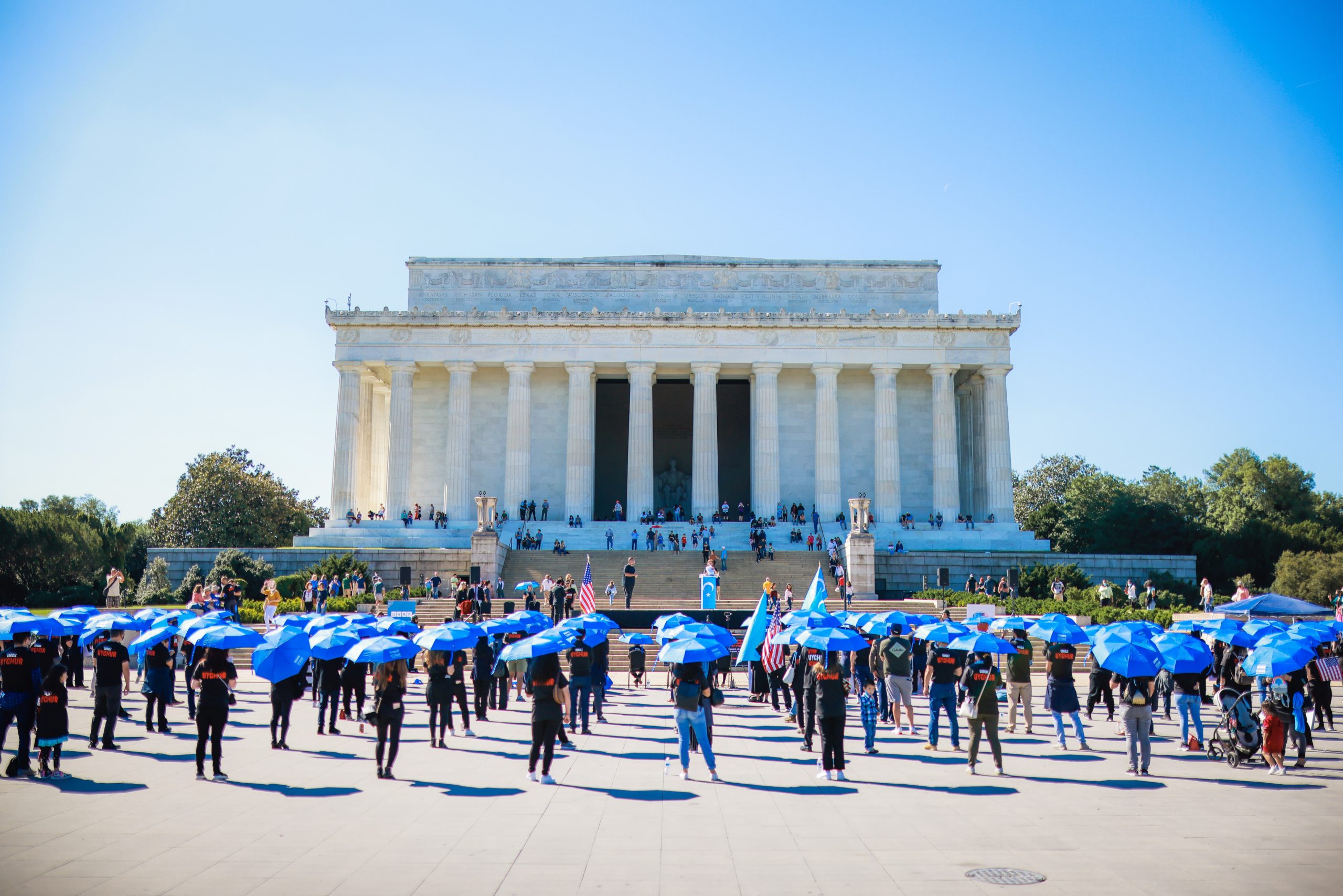Post by William C. Furr

I was a volunteer at the recent International Religious Freedom Summit in Washington, D.C.. Various groups representing oppressed Buddhists, Christians, Muslims, and others from Burma, China, East Turkistan (Xinjiang), Iraq, North Korea, Pakistan, Tibet, among other areas, gathered together with a common cause for religious freedom.
The event started with Tursunay Ziawudun, a Uyghur (a Muslim ethnic group in East Turkistan (Xinjiang)), who described her rape and torture in the internment camps, all based on the Chinese Communist Party’s campaign to destroy Uyghurs.
– – –
Nury Turkel, a Uyghur and one of the U.S. Commission on International Religious Freedom, spoke next. They described how China is using digital technology to monitor Uyghurs, and that China is exporting this technology to other totalitarian dictatorships.
Bipartisan speakers from Speaker Nancy Pelosi to Former Secretary of State Mike Pompeo reminded us of the threats to religious freedom from China and other malign forces in our world.
The Founding Fathers of the United States enshrined freedom of religion as a part of the United States’ Constitution, writing in the First Amendment that:
“Congress shall make no law respecting an establishment of religion, or prohibiting the free exercise thereof.”
– Ist Amendment
Contrast securing free exercise of religion with the tortured wording of Article 36 of the Constitution of the People’s Republic of China:
“Citizens of the People’s Republic of China enjoy freedom of religious belief.”
“No State organ, public organization or individual may compel citizens to believe in, or not to believe in, any religion; nor may they discriminate against citizens who believe in, or do not believe in, any religion.”
“The State protects normal religious activities. No one may make use of religion to engage in activities that disrupt public order, impair the health of citizens or interfere with the educational system of the State.”
“Religious bodies and religious affairs are not subject to any foreign domination.”
– Article 36 of the Constitution of the People’s Republic of China
The difference is clear: the people of China do not have free exercise of religion. Chinese citizens can only participate in “normal religious activities” as defined by the Chinese Communist Party, which is anti-religion.

When I went to Wuhan, China to study, I remember that in the first few days there, we had an orientation including a talk from a member of the local public security bureau. In that talk, the officer explicitly stated that Muslim foreign students were not allowed to pray in public or to make the call to prayer. Later there would be restrictions on religious clothing.
Can it be much better for people of faith that are citizens of the People’s Republic of China, like the Uyghurs? We have every indication that it is much worse. The scope of the internment camps for Uyghurs is incredible, and the campaign of forced sterilizations will be one of the main legacies of General Secretary Xi Jinping.
– – –
I am proud to have volunteered at the Uyghur Human Rights Project this summer and participated in the International Religious Freedom Summit in Washington, D.C.
This post was written by a Center for Global Justice Intern. The views expressed in this post do not necessarily reflect those of Regent University, Regent Law School, or the Center for Global Justice.

